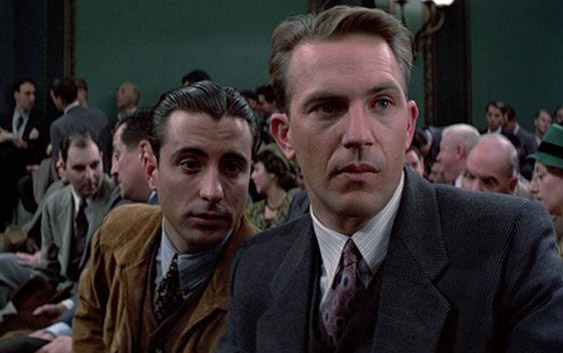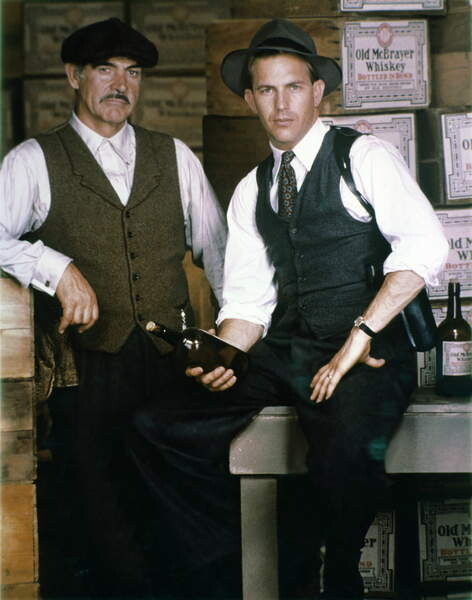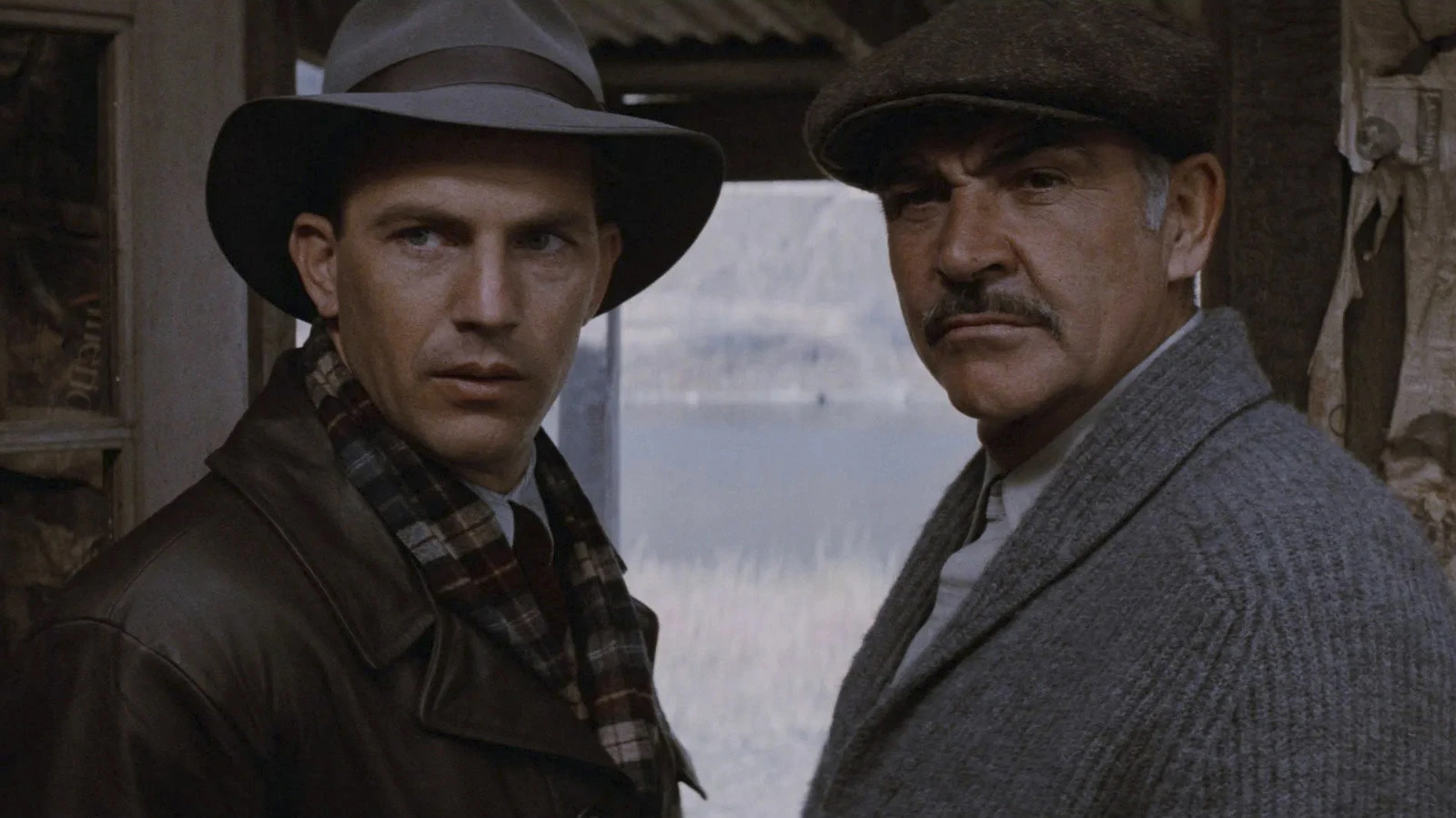The Untouchables: A Masterpiece of Crime Drama
In the pantheon of crime cinema, few films stand as tall and enduring as Brian De Palma's "The Untouchables." Released in 1987, this masterpiece of cinematic storytelling remains a quintessential example of the genre, blending historical events with a gripping narrative, unforgettable characters, and stellar performances. Set against the backdrop of Prohibition-era Chicago, "The Untouchables" is a riveting tale of justice, corruption, and the relentless pursuit of truth. In this 1500-word review, we'll delve deep into the film's various elements, exploring its themes, characters, direction, and lasting impact on cinema. Plot and Themes
Plot and Themes
"The Untouchables" is loosely based on the real-life exploits of lawman Eliot Ness and his team of incorruptible agents as they wage war against the notorious gangster Al Capone during the height of Prohibition. At its core, the film is a classic tale of good versus evil, with Ness (played by Kevin Costner) embodying the unwavering pursuit of justice, and Capone (portrayed with chilling charisma by Robert De Niro) representing the unchecked power of organized crime.
One of the film's central themes is the struggle against corruption and the importance of upholding the rule of law, even in the face of overwhelming odds. Ness and his team, dubbed "The Untouchables" for their refusal to take bribes or succumb to intimidation, serve as symbols of integrity and righteousness in a city rife with moral decay. Their quest to bring Capone to justice is not only a battle of wits and firepower but also a moral crusade to restore order to a lawless society.
Another key theme explored in "The Untouchables" is the cost of pursuing justice. As Ness and his team relentlessly pursue Capone, they are forced to confront the harsh realities of their chosen profession, including violence, betrayal, and personal sacrifice. The film doesn't shy away from depicting the toll that their crusade takes on both their professional and personal lives, adding depth and complexity to its characters and narrative.
Characters and PerformancesAt the heart of "The Untouchables" are its richly drawn characters, brought to life by a stellar ensemble cast. Kevin Costner delivers a career-defining performance as Eliot Ness, imbuing the character with a sense of moral rectitude and determination that drives the film forward. As the leader of "The Untouchables," Costner's Ness serves as both a moral compass and a relatable everyman, making him a compelling protagonist to root for.
Opposite Costner is Robert De Niro, who delivers a mesmerizing portrayal of Al Capone. De Niro's Capone is a larger-than-life figure, equal parts charming and ruthless, whose presence looms large over every scene he's in. From his menacing gaze to his menacing demeanor, De Niro captures the essence of one of history's most notorious criminals with chilling authenticity, cementing his status as one of cinema's greatest actors.
Rounding out the cast are Sean Connery as the seasoned Irish cop Jimmy Malone, Charles Martin Smith as the nerdy accountant-turned-agent Oscar Wallace, and Andy Garcia as the sharpshooting rookie George Stone. Each actor brings depth and nuance to their respective roles, adding layers of complexity to the film's ensemble dynamic. Connery, in particular, shines as Malone, delivering a performance that earned him an Academy Award for Best Supporting Actor.
Direction and Cinematography Under the masterful direction of Brian De Palma, "The Untouchables" is a visual tour de force, with each frame meticulously crafted to heighten the film's tension and suspense. De Palma's signature style is on full display here, from his dynamic use of camera movement to his expertly staged set pieces. Whether it's the breathtaking shootout at Union Station or the iconic showdown on the Canadian border, De Palma demonstrates an unparalleled command of the medium, creating some of the most memorable sequences in cinematic history.
Under the masterful direction of Brian De Palma, "The Untouchables" is a visual tour de force, with each frame meticulously crafted to heighten the film's tension and suspense. De Palma's signature style is on full display here, from his dynamic use of camera movement to his expertly staged set pieces. Whether it's the breathtaking shootout at Union Station or the iconic showdown on the Canadian border, De Palma demonstrates an unparalleled command of the medium, creating some of the most memorable sequences in cinematic history.
Complementing De Palma's direction is the stunning cinematography of Stephen H. Burum, whose evocative imagery captures the grit and glamour of 1920s Chicago. From the neon-lit streets to the smoke-filled speakeasies, Burum's lens transforms the Windy City into a vivid and immersive backdrop for the film's unfolding drama. His use of light and shadow adds depth and atmosphere to each scene, while his dynamic compositions keep the audience engaged from start to finish.
Legacy and Impact Nearly four decades after its release, "The Untouchables" remains a timeless classic that continues to captivate audiences with its gripping storytelling and unforgettable characters. Its influence can be felt across generations of filmmakers, who have drawn inspiration from its themes, style, and craftsmanship. From television series like "The Sopranos" to films like "The Departed," the legacy of "The Untouchables" endures as a testament to the enduring power of cinema to entertain, enlighten, and inspire.
Nearly four decades after its release, "The Untouchables" remains a timeless classic that continues to captivate audiences with its gripping storytelling and unforgettable characters. Its influence can be felt across generations of filmmakers, who have drawn inspiration from its themes, style, and craftsmanship. From television series like "The Sopranos" to films like "The Departed," the legacy of "The Untouchables" endures as a testament to the enduring power of cinema to entertain, enlighten, and inspire.
In conclusion, "The Untouchables" stands as a masterful achievement in crime cinema, thanks to its compelling narrative, unforgettable characters, and impeccable craftsmanship. Brian De Palma's direction, coupled with a stellar ensemble cast and stunning cinematography, elevates the film to the realm of cinematic greatness, where it continues to hold sway as one of the finest examples of its genre. For fans of crime dramas and cinematic storytelling alike
t the heart of "The Untouchables" are its richly drawn characters, brought to life by a stellar ensemble cast. Kevin Costner delivers a career-defining performance as Eliot Ness, imbuing the character with a sense of moral rectitude and determination that drives the film forward. As the leader of "The Untouchables," Costner's Ness serves as both a moral compass and a relatable everyman, making him a compelling protagonist to root for. Opposite Costner is Robert De Niro, who delivers a mesmerizing portrayal of Al Capone. De Niro's Capone is a larger-than-life figure, equal parts charming and ruthless, whose presence looms large over every scene he's in. From his menacing gaze to his menacing demeanor, De Niro captures the essence of one of history's most notorious criminals with chilling authenticity, cementing his status as one of cinema's greatest actors.
Opposite Costner is Robert De Niro, who delivers a mesmerizing portrayal of Al Capone. De Niro's Capone is a larger-than-life figure, equal parts charming and ruthless, whose presence looms large over every scene he's in. From his menacing gaze to his menacing demeanor, De Niro captures the essence of one of history's most notorious criminals with chilling authenticity, cementing his status as one of cinema's greatest actors.




















































